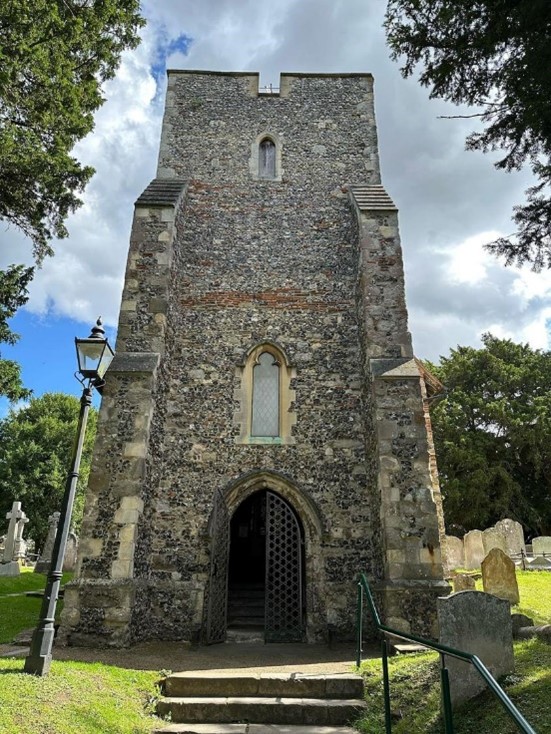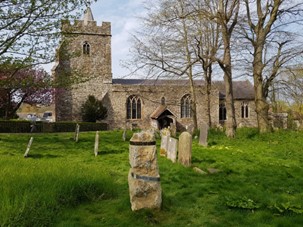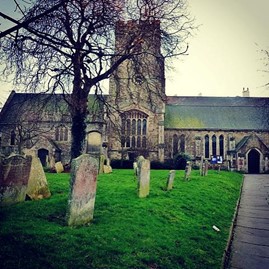Tomorrow we celebrate the feast of Christ’s Ascension. Just before he went up to Heaven, he instructed his disciples to preach the Good News to the ends of the earth. Many of those early followers were killed for their faith. Last year, 20 Catholic missionaries met violent deaths worldwide: one Bishop, eight Priests, two Religious Brothers, one Seminarian, one Novice, and seven Lay people were killed.
Sadly, the past year saw many missionaries and pastoral workers become victims of violence as they were going about their everyday lives and activities. Many of them were killed in places and situations marked by conflict – by soldiers, militia, terrorist groups, or individuals wielding weapons.
In the mystery which unites them to the Passion and Resurrection of Christ, these witnesses of faith also share in the pain of Christ for all the innocent who suffer unjustly. The gift of their lives reflects Christ’s salvation offered to all humanity, and manifests God’s love for all.
Pope Francis said: ‘There are many in our world who suffer and die to bear witness to Jesus… the seed of their sacrifices, which seems to die, germinates and bears fruit, because God, through them, continues to work miracles (cf. Acts 18:9-10), changing hearts and saving humankind.’ ‘Let us ask ourselves, then: do I care about and pray for those who, in various parts of the world, still suffer and die for the faith today? And in turn, do I try to bear witness to the Gospel consistently, with gentleness and confidence? Do I believe that the seed of goodness will bear fruit even if I do not see the immediate results?’
Fr Jacques Yaro Zerbo, 67, was killed on 2 January while on his way to carry out pastoral activities in the Boucle du Mouhoun region of Burkina Faso. The unidentified armed men murdered him and drove away in his car.
Fr Isaac Achi, 61, died on 15 January during an attack on his parish in northern Nigeria.
The armed group, unable to access the presbytery, set fire to it. Whilst a fellow Priest, Fr Collins Omeh, was wounded as he fled the house, Fr Isaac was unable to escape the flames.
Diego Valencia, 65, Sacristan of the Parish of Nuestra Señora de La Palma in the province of Cadiz, Spain, was killed on 25 January whilst trying to stop an attack on parishioners by a young man armed with a machete. The perpetrator was later arrested by the police.
Fr Juan Angulo Fonseca, 53, Parish Priest of Our Lady of Guadalupe in the state of Jalisco, Mexico, was shot and died on 10 February. Sources claim that this well-respected Priest fell victim to a family member over a land dispute.
Monsignor David O’Connell, 69, Auxiliary Bishop of Los Angeles (USA), was shot by his housekeeper’s husband on 18 February. The perpetrator was later arrested and confessed to the crime, possibly motivated by a dispute over money.
Br Moses Simukonde Sens, 35, a Missionary of Africa from Zambia, was killed on 29 March by a stray bullet near a military checkpoint in Ouagadougou, Burkina Faso’s capital.
Fr Javier García Villafaña, 35, an Augustinian and Parish Priest in the Archdiocese of Morelia, Mexico, was murdered on 22 May when his car was
riddled with bullets as he was on his way to celebrate Mass.
Fr Charles Onomhoale Igechi, a recently ordained Priest of the Archdiocese of Benin City, was killed by gunmen along Agbor Rd, Edo State, Nigeria on 7 June.
Gertrudis Cruz de Jesús and Gliserina Cruz Merino, both young catechists, were killed on 15 June, during a conflict between armed groups while on their way to a Eucharistic procession in the state of Oaxaca, Mexico. They belonged to a movement for the recognition of the human rights of their people – the Triquì.
Fr Pamphili Nada died from his injuries on 19 July whilst being taken to hospital. He had been attacked with a blunt object by a mentally unwell man in his parish of Our Lady Queen of Apostles, Arusha, Tanzania.
Seminarian Na’aman Danlami, 25, perished in a fire on 7 September. It was deliberately started by armed bandits after they failed to kidnap the Parish Priest of St Raphael’s Parish of Kaduna State, Nigeria.
Godwin Eze, 31, a Benedictine Novice kidnapped from the monastery in Eruku,
Kwara State, Nigeria, was shot dead and his body thrown into a river by an armed group on 18 October.
Br Cyprian Ngeh, 40, an exemplary Religious nurse of the Congregation of the
Sons of the Immaculate Conception, was attacked and stabbed to death in Bamenda, Cameroon on 7 November whilst walking back to his Congregation’s Health Centre.
Junrey Barbante, 24, and Janine Arenas, 18, students and committed volunteers of the Catholic chaplaincy community of Mindanao’s State University in the
Philippines, were killed on 3 December by a local group retaliating to military
operations. They were among the victims and casualties of the bomb which detonated during the celebration of Mass on the first Sunday of Advent.
Fr Stephen Gutgsell, 65, died on 10 December following a knife attack during an attempted break-in at the church in Fort Cahloun, a small community in Nebraska (USA) that he had led for 11 years. The suspected attacker was arrested by police.
Fr Léopold Feyen, 82, a Salesian of Don Bosco from Belgium, was stabbed to death by an unidentified killer in the parish of St Mary Help of Christians in Kinshasa, Democratic Republic of Congo on 12 December.
Samar Kamal Anton, and her mother, Nahida Khalil Anton, were killed on 16 December by snipers as they were walking to the Convent of the Sisters of Mother Theresa in the parish complex of the Holy Family in Gaza. One was killed as she tried to carry the other to safety. Both belonged to a prayerful group of Catholic and Orthodox women committed to serving poor and disabled people.
Please join us in giving thanks for
the work and witness of these, our
sisters and brothers. May they
rest in peace and rise in glory.
Amen.
All information is supplied by Fides, the Vatican-based news agency of Missio, and by Vatican News.














